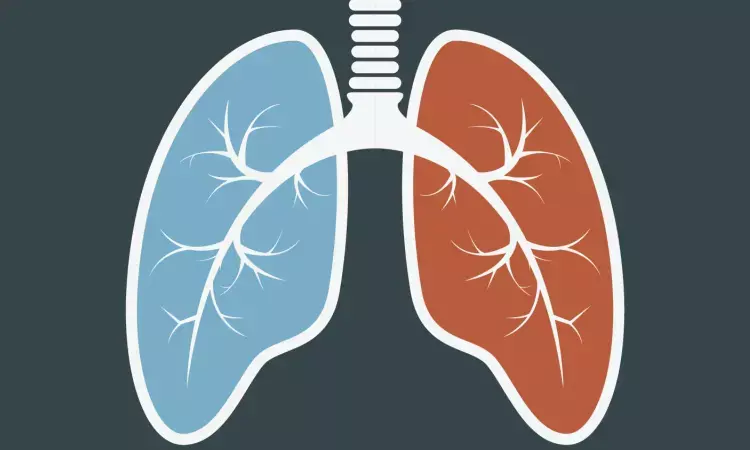- Home
- Medical news & Guidelines
- Anesthesiology
- Cardiology and CTVS
- Critical Care
- Dentistry
- Dermatology
- Diabetes and Endocrinology
- ENT
- Gastroenterology
- Medicine
- Nephrology
- Neurology
- Obstretics-Gynaecology
- Oncology
- Ophthalmology
- Orthopaedics
- Pediatrics-Neonatology
- Psychiatry
- Pulmonology
- Radiology
- Surgery
- Urology
- Laboratory Medicine
- Diet
- Nursing
- Paramedical
- Physiotherapy
- Health news
- Fact Check
- Bone Health Fact Check
- Brain Health Fact Check
- Cancer Related Fact Check
- Child Care Fact Check
- Dental and oral health fact check
- Diabetes and metabolic health fact check
- Diet and Nutrition Fact Check
- Eye and ENT Care Fact Check
- Fitness fact check
- Gut health fact check
- Heart health fact check
- Kidney health fact check
- Medical education fact check
- Men's health fact check
- Respiratory fact check
- Skin and hair care fact check
- Vaccine and Immunization fact check
- Women's health fact check
- AYUSH
- State News
- Andaman and Nicobar Islands
- Andhra Pradesh
- Arunachal Pradesh
- Assam
- Bihar
- Chandigarh
- Chattisgarh
- Dadra and Nagar Haveli
- Daman and Diu
- Delhi
- Goa
- Gujarat
- Haryana
- Himachal Pradesh
- Jammu & Kashmir
- Jharkhand
- Karnataka
- Kerala
- Ladakh
- Lakshadweep
- Madhya Pradesh
- Maharashtra
- Manipur
- Meghalaya
- Mizoram
- Nagaland
- Odisha
- Puducherry
- Punjab
- Rajasthan
- Sikkim
- Tamil Nadu
- Telangana
- Tripura
- Uttar Pradesh
- Uttrakhand
- West Bengal
- Medical Education
- Industry
High circulating acetylcholine levels associated with severe pulmonary hypertension and poor prognosis: Study

China: A recent study published in BMC Pulmonary Medicine has revealed an association between high circulating acetylcholine (ACh) levels and severe pulmonary hypertension (PH) conditions and poor prognosis. The findings suggest that circulating acetylcholine might be a potential biomarker in pulmonary hypertension.
Pulmonary hypertension is a life-threatening cardiovascular disease (CVD) characterized by a progressive and chronic increase in pulmonary vascular resistance (PVR), resulting in remodelling of the right ventricle and eventual right ventricular failure.
Acetylcholine is a well-established signalling molecule that serves as the primary chemical neurotransmitter regulating various physiological functions. Previous studies have revealed an increased ACh level in the right ventricle tissue of PH, indicating the important role of ACh in disease pathogenesis. However, no investigation has been done on the relationship between plasma ACh levels, disease conditions and patients’ prognosis.
Against the above background, Changming Xiong, Chinese Academy of Medical Sciences and Peking Union Medical College, Beijing, China, and colleagues aimed to explore the association between plasma ACh levels and the prognosis of patients with pulmonary hypertension. They also discussed the feasibility of plasma ACh as a biomarker, which may contribute to managing PH patients in the future.
For this purpose, the research team enrolled patients with confirmed PH in Fuwai Hospital from 2019 to 2020. The study's primary clinical outcome was defined as a composite outcome including lung transplantation/death, worsening of symptoms, and heart failure. Fasting plasma was collected to detect ACh levels. The association between ACh levels and patients’ prognosis was explored.
The study enrolled four hundred and eight patients with PH and followed for a mean period of 2.5 years.
The study led to the following findings:
- Patients in the high ACh group had worse World Health Organization Functional Class (WHO-FC), lower 6-minute walk distance (6 MWD), and higher N-terminal pro-brain natriuretic peptide (NT-proBNP).
- Hemodynamic and echocardiographic parameters in the high metabolite group also suggested a worse disease condition compared with the low ACh group.
- After adjusting for confounders, compared with low ACh patients, those with high metabolite levels still have worse prognoses characterized as elevated risk of mortality, symptoms worsening, and heart failure.
The findings showed that high circulating ACh levels were associated with severe pulmonary hypertension conditions. Compared with low ACh patients, those with high metabolite levels had worse prognoses characterized by an elevated risk of heart failure, mortality, and symptoms worsening. This suggests that circulating ACh may serve as a potential biomarker in PH.
The limitations were that it was a single-centre study, the specific role of ACh in PH pathogenesis was still unknown, and basic research was warranted to reveal the inner association.
"Nevertheless, our study first demonstrated the potential biomarker role of ACh in PH, indicating its value in disease management," the research team wrote.
Reference:
Yang, Y., Xu, J., Shu, S. et al. Circulating acetylcholine serves as a potential biomarker role in pulmonary hypertension. BMC Pulm Med 24, 35 (2024). https://doi.org/10.1186/s12890-024-02856-7
Dr Kamal Kant Kohli-MBBS, DTCD- a chest specialist with more than 30 years of practice and a flair for writing clinical articles, Dr Kamal Kant Kohli joined Medical Dialogues as a Chief Editor of Medical News. Besides writing articles, as an editor, he proofreads and verifies all the medical content published on Medical Dialogues including those coming from journals, studies,medical conferences,guidelines etc. Email: drkohli@medicaldialogues.in. Contact no. 011-43720751


